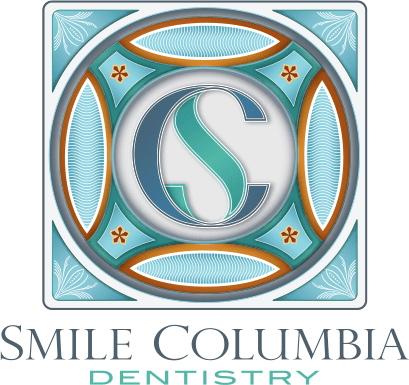When you get dentures, your mouth undergoes many changes to try to adapt. These adaptations are rarely beneficial, and they’re often harmful to the proper fitting of your dentures. One adaptation that is particularly hard to deal with is called “flabby ridge.”

What Is Flabby Ridge?
Flabby ridge is a variation on the normal alterations in your mouth related to a loss of teeth and getting dentures. When you get dentures, your body begins removing the bone that used to support your teeth, called the alveolar ridge.
Sometimes, in addition to removing bone, the body actually builds up soft fibrous tissue where the bone used to be. This creates excess soft tissue in the ridge, and is why the condition is called “flabby ridge.”
Flabby ridge can significantly interfere with the function of your dentures. Because there’s excess soft tissue on the bony ridge, your dentures can’t get support from the alveolar ridge, which reduces your bite force even lower. And because these soft tissues shift around, your dentures are more likely to move around. This movement can break the seal on your dentures, so they lose vacuum retention and fall out more often.
Plus, it’s hard for dentists to get a good impression and fit for dentures if you have flabby ridge. And with the flabby ridge, poorly fitting dentures are never going to function well.
Dealing with Flabby Ridge
So how can dentists manage flabby ridge to get you the best results for your dentures? There are several approaches that can give good results for people with flabby ridge.
One way is to surgically remove the flabby ridge tissue. This would allow dentures to fit like traditional dentures on a normal ridge. A sclerosing solution can also be used. This causes the body to form scar tissue in the ridge area, which is firmer than the soft tissue, although not as firm as bone. Ridge augmentation with bone can provide a solid bony foundation, and is especially helpful where little ridge remains to support the denture.
But perhaps the best solution for flabby ridge is implant dentures. Implant dentures can avoid the problems of flabby ridges because they don’t depend on your gums to support them. Instead, they’re supported by the bones. Dental implants also help you to retain bone in the alveolar ridges. Without the stimulation of dentures pressing on gums, fibrous tissue is less likely to overgrow.
And you’ll also get all the benefits of implant dentures: better chewing force, secure dentures, and better comfort.
If you are having difficulty with flabby ridge making it hard to get a good denture fit, we can help. Please call (803) 781-9090 today for an appointment with a denture dentist at Smile Columbia Dentistry.

